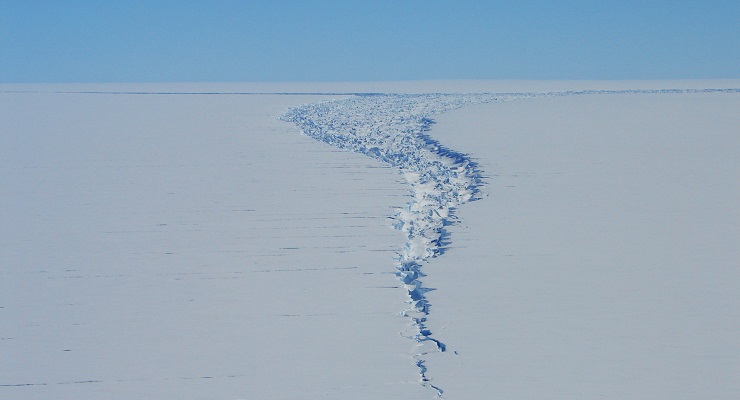
Cooler heads tried to prevail in Hobart this week, but politics proved potent at the 41st annual convention on international antics in Antarctica. Delegations from 26 nations and the EU are only halfway through a two-week event and there has already been a staged walk-out, while Russia and China fuel division between delegates and key players.
It is the first in-person meeting in three years of the Commission for the Conservation of Marine Living Resources (CCAMLR), a scientific body with a mandate to “conserve marine ecosystems in the waters around Antarctica” through peace and cooperation. The commission operates on consensus but frosty relations between member nations and “differences of opinion” have this week threatened to scupper progress on key issues including catch limits and the establishment of nearly four million square km of marine protected areas (MPAs).
The ins and outs of negotiations are yet to be disclosed, with the Australian delegation committed to a policy of no media, but Crikey spoke to other international delegates about the disunity.
“It is very difficult to find a way out when there’s no scientific issue or interpretation that can save us,” Japanese delegate Joji Morishita told Crikey. “But we are trying very hard in the meeting.”
The biggest geopolitical import (now a feature of most international forums) is Russia’s war on Ukraine. This month, Russian bombing in the Ukrainian capital of Kyiv damaged Ukraine’s Antarctic research centre, leaving “cracks in the walls, broken windows, destroyed equipment” and rendering it unfit for purpose, Ukrainian delegate Kostiantyn Demianenko told AP. Now, both warring nations are in the same room at CCAMLR.
On day one of the conference, almost 20 member nations staged a walk-out during an address from a Russian representative. This followed statements from several nations that expressly opposed Russia’s unlawful invasion of Ukraine.
A high-level US delegation, led by assistant secretary for Oceans and International Environmental and Scientific Affairs Monica Medina said these protests were “unrelated to the conference” and that discussions between member nations remained “very focused on the issues around Antarctica”.
The name of the US game is “to advance marine protected areas in Antarctica as a way to help deal with the impacts of climate change”.
But Antarctica expert from the University of Tasmania Bruno Arpi said these tensions were likely to rear their heads again when the commission moves to appoint Ukraine as the next chair (as alphabetical order dictates).
“We want to avoid external geopolitical tensions impacting the Antarctic system, but we will see some spill-over from the Russian invasion of Ukraine in CCAMLR,” he said.
Arpi said concern is growing in the Antarctic community about the “tone” of these conferences given the entire Antarctic treaty system relies on cooperation and consensus: “We need no objection from countries, but the last couple of years we have seen Russia and China continuously blocking consensus.”
Morishita would not name names, reiterating that Japan was “trying to take a neutral position as much as possible”, but said that some countries put more emphasis on “rational use” of resources than conservation.
Medina was more direct, calling out both Russia and China as the “two countries that are blocking our progress”.
“Russia and China have objected, all the other countries are in favour,” she said.
So what game is Russia and China playing?
Tony Press, another Antarctic expert from the University of Tasmania, said that Russia’s strategy is straightforward: “They’re playing the role of the disruptor.”
According to Press, China is comparatively exercising its influence by “forestalling agreement” and “re-interpreting the legal regimes of Antarctica”.
“In order to keep options wide open, they’re challenging the scientific basis of certain decisions,” he said. “They’re also putting a Chinese interpretation on traditional scientific norms and trying to wrap that up in a legal framework.”
China has been clear that it does not want krill catch caps installed, particularly in waters around the Antarctic peninsula. The science and other member nations say otherwise. But that counts for little if China and Russia continue to exercise veto power.
Both the Russian and Chinese delegations were contacted for comment.
Morishita said Japan was concerned about CCAMLR’s inability to “make major decisions” but opposed calls to overhaul the consensus-based system.
“This consensus system is what has made CCAMLR effective,” he said. “Changing it would further divide the nations.”








With no krill everything collapses the ocean is stuffed and jellyfish take over. True. You know we’ll do it.
Humanity needs to either stop breeding or limit to 1 per couple.
This is the key issue behind most of our problems, but it does not get media or political traction.
Yeah, you’re right! After one child, spend the rest on a Lexus! Believe me, would still cost less!
Time is running out for this World of ours . . . and Antartica either a critical accelerant or, global stabiliser. Choose. Politics or sovereign national self esteem v THE NATURAL WORLD THAT ‘DOESN’T GIVE A RAT’S’! Nature has seen more species expire than humanity x by trillion, trillion, trillion, trillion, trillion . . . . . . . . . . . . . . . . . . . . . . . . . . . . . . . . . . . . . . . . . . . . . . . .
When is enough, enough for the CCP? They’ve illegally claimed the entire South China Sea; they’ve been the chief violator of fishing rights of South Pacific countries – they won’t stop until they are stopped. Having a consensus model of governance clearly does not work if the CCP chooses to disrupt and be belligerent.
A consensus mode of government doesn’t exist in reality. This entire “conference” has been hijacked by Western countries for their own political purposes. BTW. China has not “illegally claimed the entire South China Sea” (if you want to actually look into it rather than just parrot Western Media). Japan ignores whaling bans as does Norway etc etc.
BTW. It’s the CPC not the CCP and they are not belligerent. China is merely standing up to Western bullying after 150 years of humiliation. They have done nothing that Western Nations haven’t done but the West doesn’t like that do they?